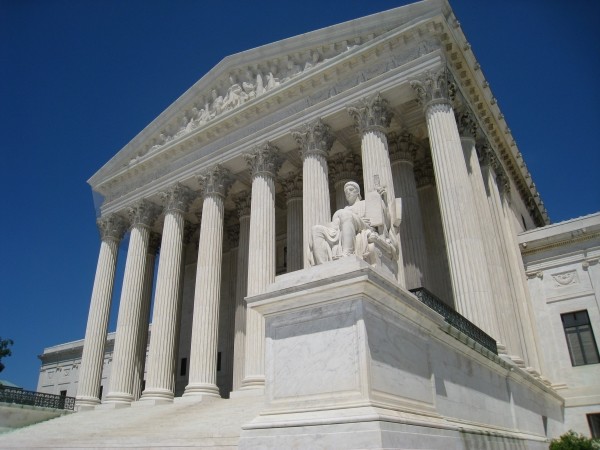
Washington, DC—(ENEWSPF)—May 15, 2018
By: Anthony Johnson
As a sports fan that likes to occasionally place a wager or two while I’m in Las Vegas, I was hoping that the United States Supreme Court would strike down the Professional and Amateur Sports Protection Act of 1992 that banned sports gambling, exempting Nevada and few other states’ betting systems. The Supreme Court took up this case because New Jersey, under the helm of then-Governor Chris Christie, moved forward with their own gambling law, challenging Uncle Sam’s prohibition of gambling. As a cannabis law reform activist, I felt that a positive ruling for gambling would be a great result for state cannabis laws, as the Court would be taking a stand against the federal government’s intrusion over states’ regulatory authority.
The Supreme Court’s 7-2 decision in Murphy v. National Collegiate Athletic Association (formerly, Christie v. National Collegiate Athletic Association) centered around the legal principle of commandeering, when the federal government is forcing the state to take an action that it normally wouldn’t take. In the landmark, but unfortunate, Raich Supreme Court case, the majority ruled that the federal government had the right to enforce federal law, but it didn’t take a stand on whether California, or any other state, had to invalidate its medical cannabis law. The notion that the states couldn’t be commandeered to change their own marijuana laws was already bolstered by the fact that the Supreme Court refused to hear Nebraska and Oklahoma’s challenge of Colorado’s regulatory system, and the Murphy decision adds a strong precedent that such challenges will be unsuccessful.
Tom Angell over at Marijuana Moment was the first to extensively report on Murphy’s impact on state marijuana laws:
“This was the only sensible outcome in this case unless the Court was willing to gut its anticommandeering jurisprudence,” Sam Kamin, who serves as the Vicente Sederberg Professor of Marijuana Law and Policy at the University of Denver’s Sturm College of Law, told Marijuana Moment in an interview. ”Congress cannot tell the state legislatures what they can and can’t do. Congress can prohibit sports gaming everywhere, but it can’t make the states do the same.”
***
Kamin, who filed an amicus brief in the case along with other law professors, said that the case has “obvious” implications for marijuana.
“The CSA stands, but so do state legalization laws,” he said. “Congress can’t prohibit those laws, force the states to repeal them or force the states to go back to prohibition. Almost everyone who’d thought carefully about these issues knew it was so, but it’s nice to see it recognized by a 7-2 Supreme Court.”
Amy Howe over a SCOTUS blog also noted that this gambling case could influence marijuana law challenges:
The 10th Amendment provides that, if the Constitution does not either give a power to the federal government or take that power away from the states, that power is reserved for the states or the people themselves. The Supreme Court has long interpreted this provision to bar the federal government from “commandeering” the states to enforce federal laws or policies. Today the justices ruled that a federal law that bars states from legalizing sports betting violates the anti-commandeering doctrine. Their decision not only opens the door for states around the country to allow sports betting, but it also could give significantly more power to states generally, on issues ranging from the decriminalization of marijuana to sanctuary cities. (emphasis added)
We are likely to see the Murphy case cited as precedent relatively soon as Josephine County has foolishly challenged Oregon’s medical and adult-use cannabis laws, arguing that the federal Controlled Substances Act tramples voter-approved initiatives, and subsequent state regulatory laws, allowing the county to prohibit cannabis in its jurisdiction. I’ve previously blogged that Josephine County Commissioners were wasting tax dollars on their quixotic, Reefer-Madness-inspired quest to overturn the will of Oregon voters; the commissioners’ case looks like an even bigger tax dollar waste after today. While Chris Christie rightly celebrates his policy victory today, he probably doesn’t quite understand or appreciate the irony that he has also bolstered the prospects of the cannabis industry as well.
A great day for the rights of states and their people to make their own decisions. New Jersey citizens wanted sports gambling and the federal Gov't had no right to tell them no. The Supreme Court agrees with us today. I am proud to have fought for the rights of the people of NJ.
— Chris Christie (@GovChristie) May 14, 2018
Source: www.internationalcbc.com








